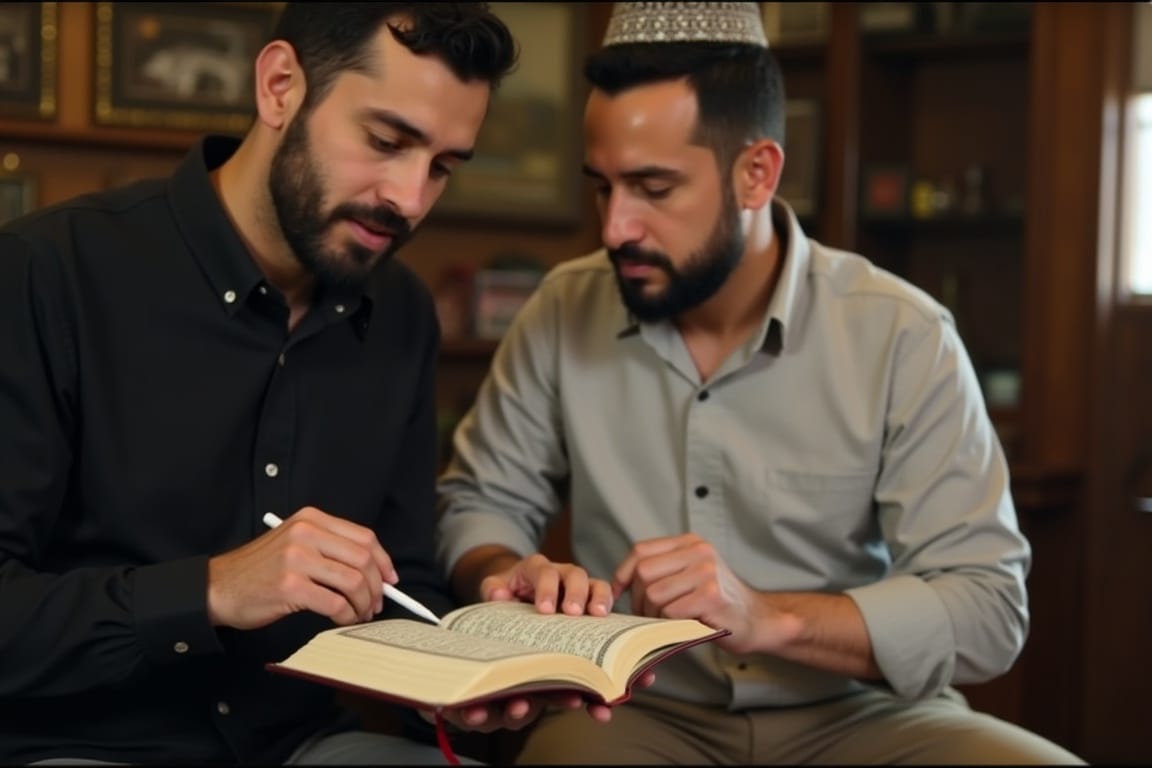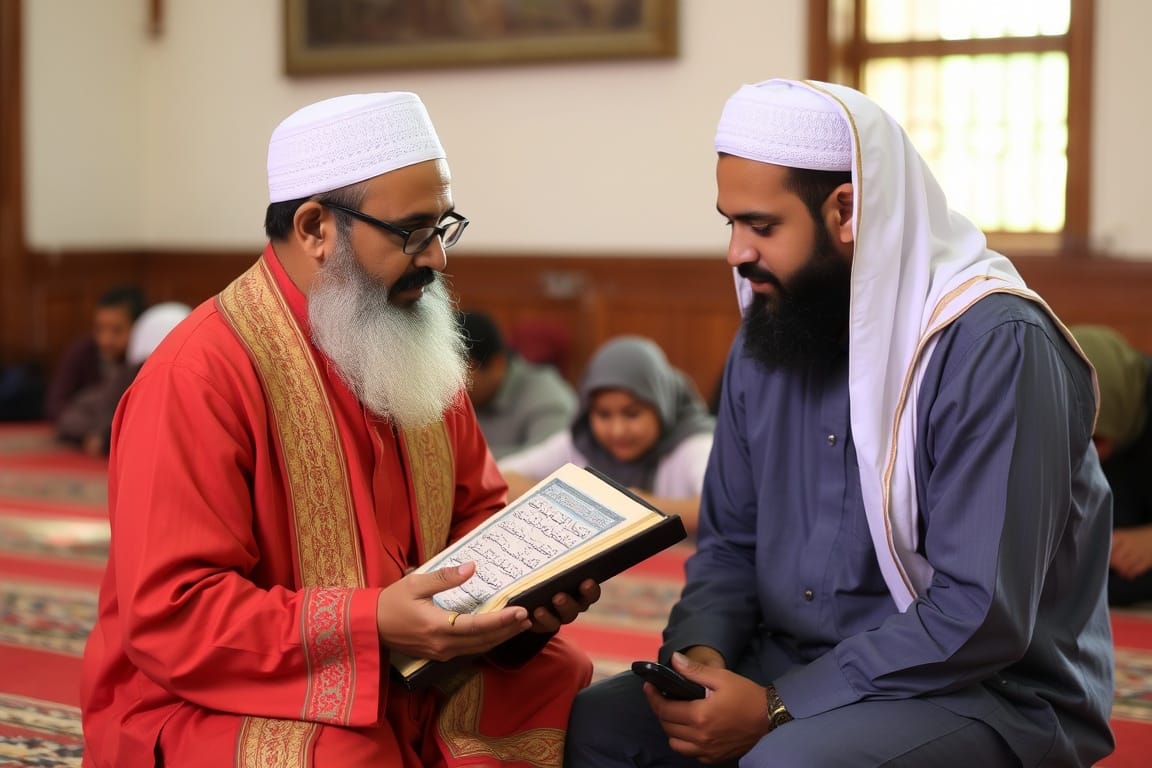The Quran is the word of Allah, and every letter in it has a precise pronunciation and meaning. Reading the Quran without Tajweed can lead to serious mistakes, as even a small change in pronunciation can alter the meaning of a verse. Tajweed is not just a decoration for recitation; it is a necessity to ensure that we recite the Quran as it was revealed to Prophet Muhammad (ﷺ).
In this blog, we will discuss why reading the Quran without Tajweed is wrong, how mispronunciations can change meanings, and why learning Tajweed is an obligation for every Muslim.



How Mistakes in Pronunciation Change Meaning
Tajweed ensures that every letter is pronounced from its correct place (Makharij). If we mispronounce a single letter, it can change the entire meaning of a word in Arabic.
📌 Example 1: “Kalb” vs. “Qalb”
Kalb (كَلْب) → Means dog
Qalb (قَلْب) → Means heart
If someone recites Surah Al-Fajr (89:27-30) and says:
> “Ya ayyatuhan nafsul mutma’innatu, irji’ee ila Rabbiqi raadiyatam mardiyyah”
But mistakenly says “Rabbiki” (with ك) instead of “Rabbiqi” (with ق), it changes the meaning drastically!
📌 Example 2: “Farah” vs. “Fatrah”
Farah (فَرَحَ) → Means happiness
Fatrah (فَتْرَةَ) → Means a gap/break
A mispronunciation like this can distort the intended message of Allah.
Why is Tajweed Important?
1. Allah Commands Us to Recite the Quran Properly
Allah (SWT) says in the Quran:
“وَرَتِّلِ الْقُرْآنَ تَرْتِيلًا”
“And recite the Quran with measured recitation.” (Surah Al-Muzzammil: 4)
Tajweed helps us follow this command by ensuring that our recitation is clear, measured, and correct.
2. Mispronunciation Can Change the Message of the Quran
Many words in Arabic look similar but have different pronunciations and meanings. Without Tajweed, we might unknowingly say something incorrect while reciting the Quran.
📌 Example 3: “Thalika” vs. “Dhalika”
ثَلِكَ (Thalika) → Means that
ذَلِكَ (Dhalika) → Also means that, but with a different sound
Saying one instead of the other might not change the meaning significantly, but improper pronunciation of other words can cause major errors.
3. Prophet Muhammad (ﷺ) Recited the Quran with Tajweed
The Prophet (ﷺ) received the Quran from Jibreel (AS) with proper Tajweed, and he taught it to his companions in the same way. He said:
> “The best among you are those who learn the Quran and teach it.”
(Sahih al-Bukhari 5027)
Since the Prophet (ﷺ) emphasized the correct way of recitation, we must follow his Sunnah and learn Tajweed properly.
How to Improve Tajweed and Recite the Quran Correctly
1. Learn the Arabic Alphabet and Makharij (Pronunciation)
Each Arabic letter has a specific place of pronunciation (Makharij) in the mouth or throat. To improve Tajweed:
✅ Study the Makharij of each letter carefully.
✅ Focus on letters that are difficult for non-Arabic speakers, like ع, ح, ق, ص, ض, ظ, ط.
📌 Example:
“Seen” (س) and “Saad” (ص) sound similar but have different pronunciations.
“Ha” (ح) comes from the throat, while “Haa” (ه) is a soft sound.
2. Understand Basic Tajweed Rules
After mastering Makharij, focus on the essential Tajweed rules:
✔ Ghunnah (Nasal Sound) – A nasal sound in letters ن and م with shaddah (ّ).
✔ Qalqalah (Echoing Sound) – A bouncing effect on ق، ط، ب، ج، د when they have a sukoon (ْ).
✔ Madd (Elongation) – Stretching certain letters (ا، و، ي) for a specific duration.
✔ Ikhfa, Idgham, Iqlab – Rules related to Noon and Meem Saakin.
🔹 Pro Tip: Take one rule at a time and practice it with a teacher.
3. Listen to Expert Qaris (Reciters)
Listening to professional Qaris helps you:
✅ Recognize correct pronunciation.
✅ Understand proper pauses (Waqf) and elongations.
✅ Develop a rhythmic and melodious recitation style.
🎧 Best Qaris to Listen to for Tajweed:
✔ Sheikh Mishary Rashid Alafasy
✔ Sheikh Abdul Basit Abdus Samad
✔ Sheikh Saad Al-Ghamdi
✔ Sheikh Mahmoud Khalil Al-Hussary
4. Practice Daily with a Quran Teacher
Improving Tajweed without guidance is difficult. A professional Quran teacher helps correct mistakes and teaches the right techniques.
Quran Horizon School offers:
📌 One-on-one live classes
📌 Certified Tajweed teachers
📌 Personalized feedback & correction
👉 Enroll Now: Tajweed Course
5. Record and Analyze Your Recitation
Listening to your own recitation helps identify errors in pronunciation, fluency, and Tajweed rules.
✅ Use your phone or computer to record short verses.
✅ Compare with a Qari’s recitation.
✅ Note mistakes and correct them with practice.
6. Read Slowly and Focus on Every Letter
Rushing through the Quran can lead to mistakes in pronunciation and Tajweed. Instead:
✅ Read each verse slowly and carefully.
✅ Break the words down and apply the Tajweed rules properly.
✅ Gradually increase speed as fluency improves.
🔹 Example:
Instead of reading “Alhamdulillahi Rabbil ‘Aalameen” too fast, break it down:
➡ “Al-Ham-du li-llahi Rab-bil ‘Aalameen”
Final Thoughts
Reading the Quran without Tajweed is wrong because it can alter the meaning of Allah’s words. Since the Quran is the divine message of guidance, we must respect it by reciting it correctly.
💡 Ready to Learn Tajweed the Right Way?
Join Quran Horizon School today and learn from professional Tajweed teachers who will guide you step by step!
📌 Enroll Now: Book 3 Days Free Trial Class



Put correct shortname from your Disqus account in Customizer settings.